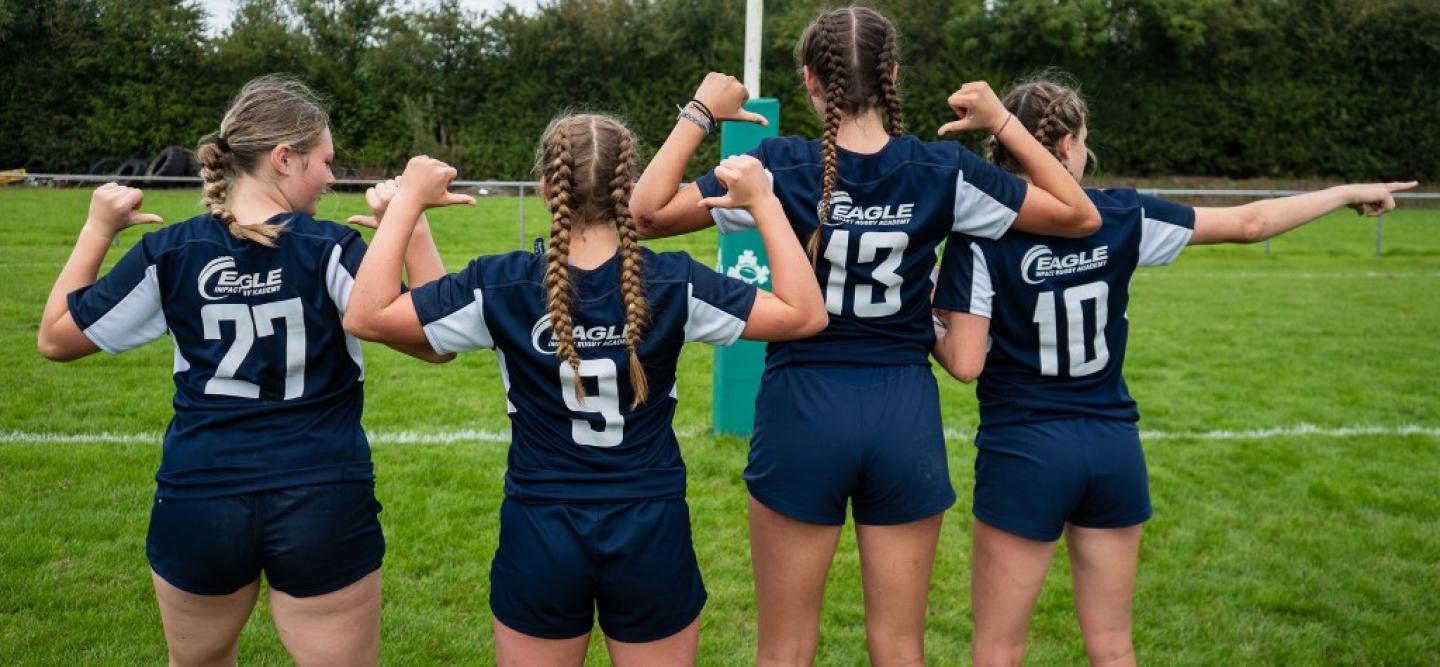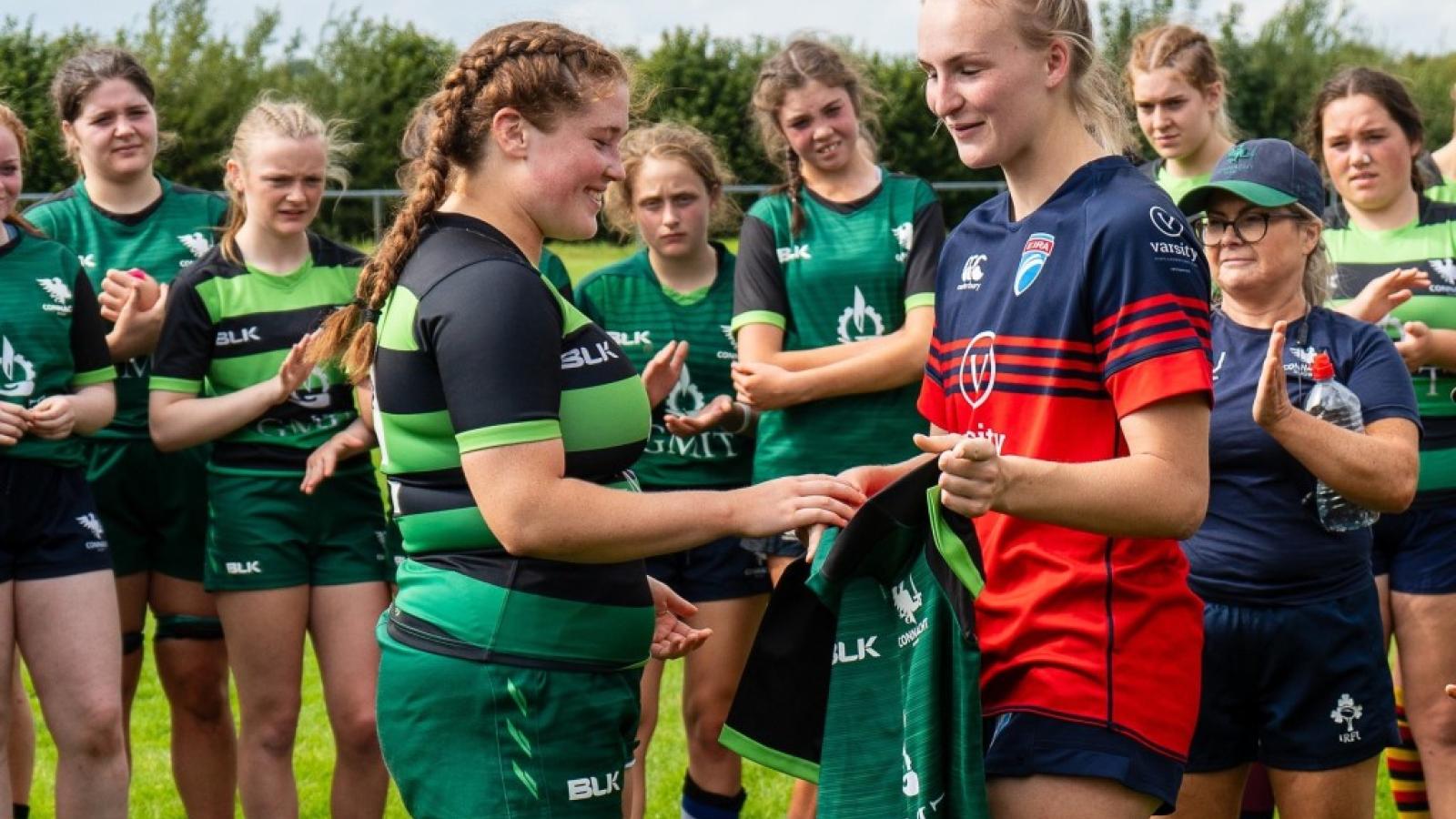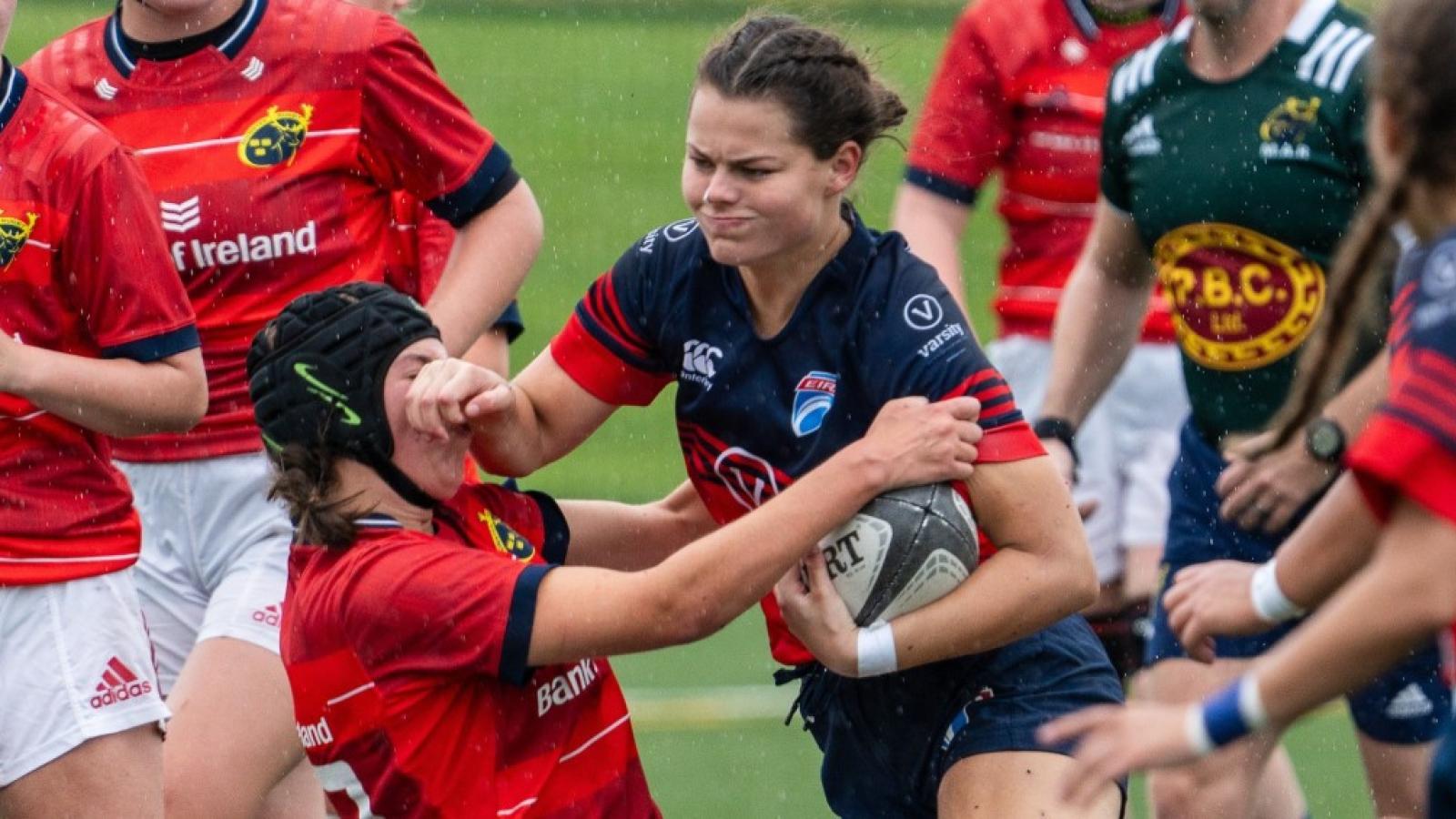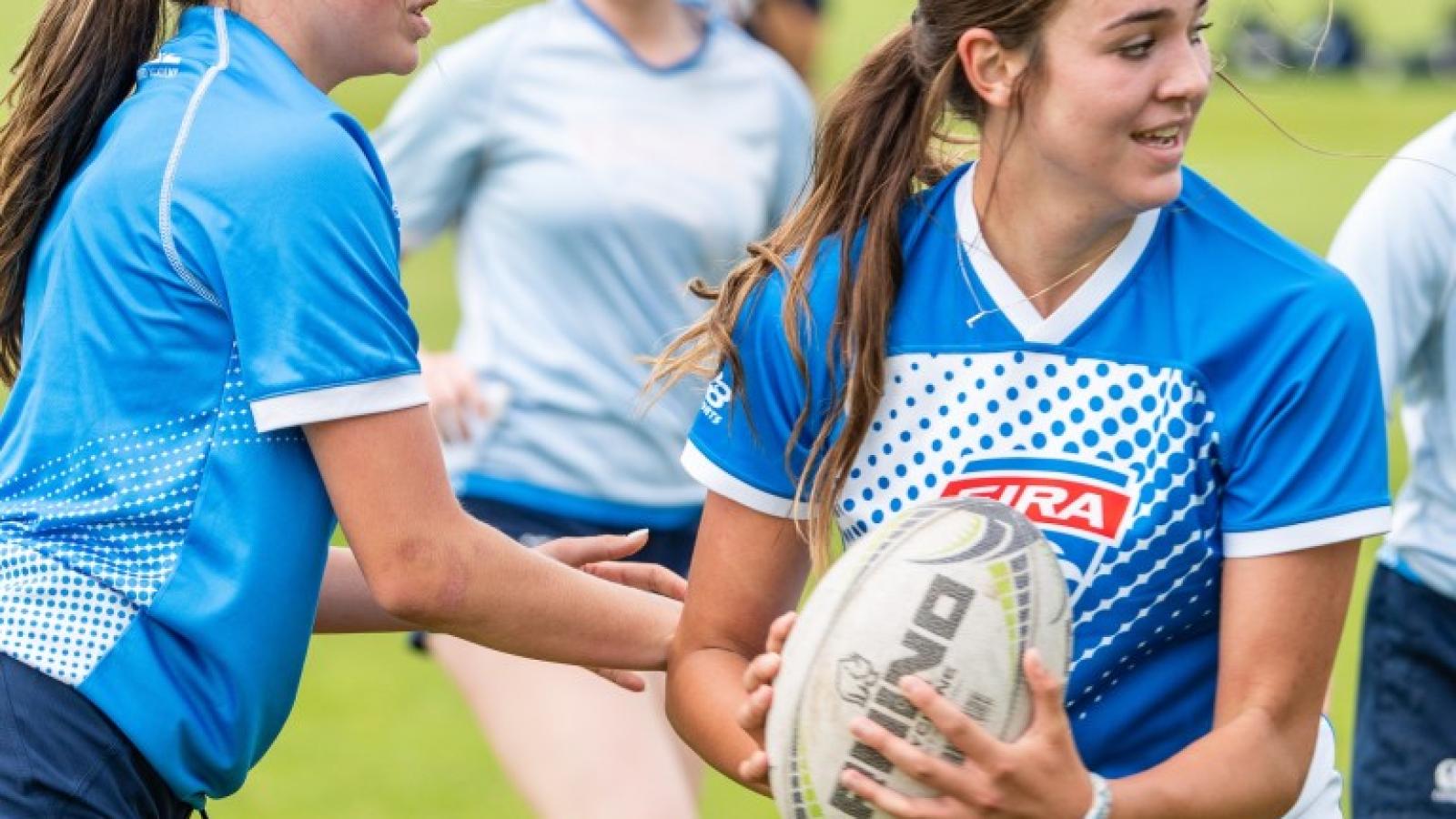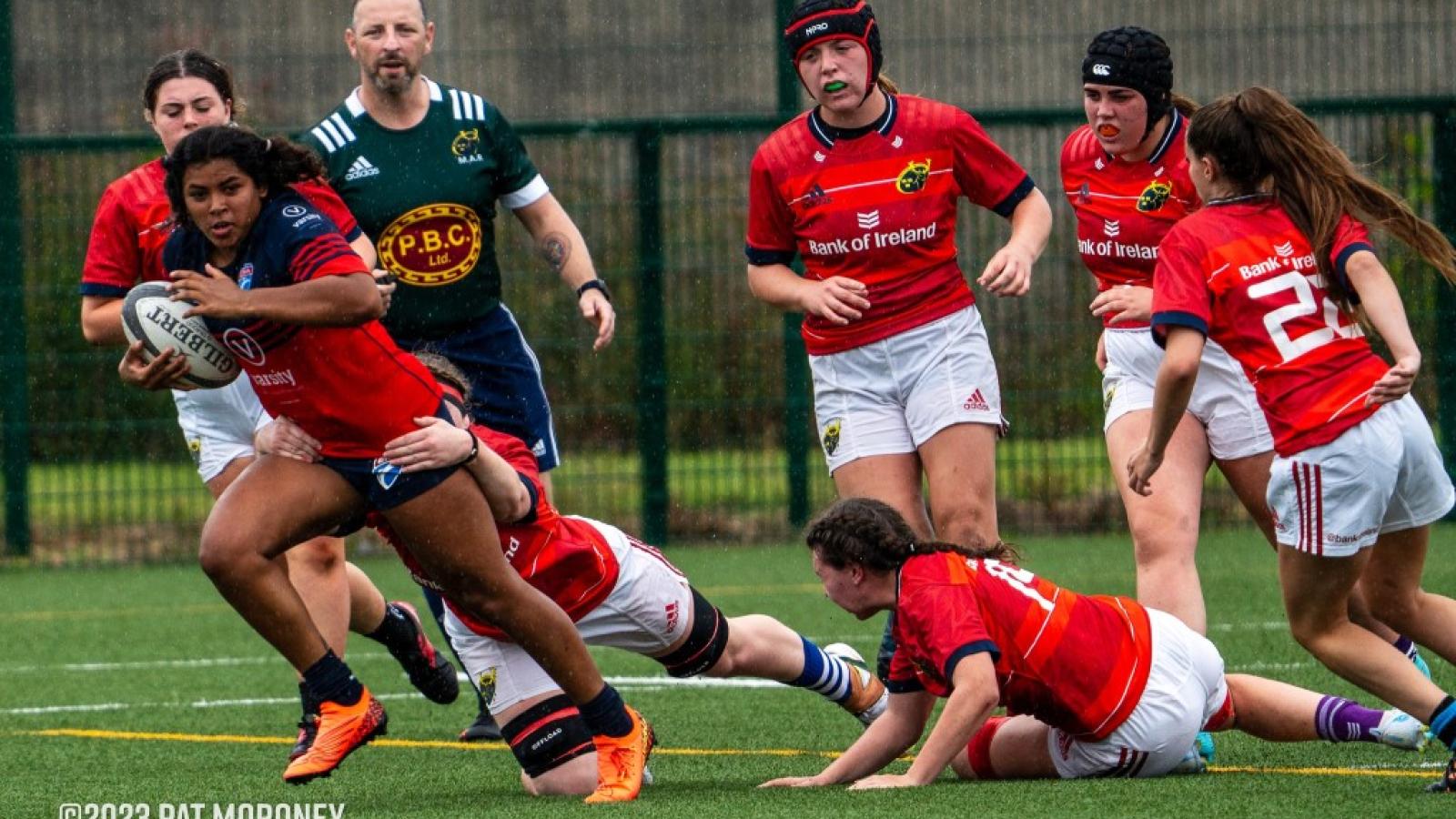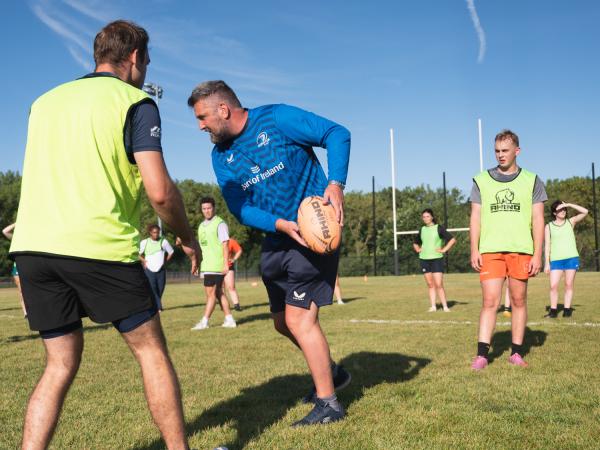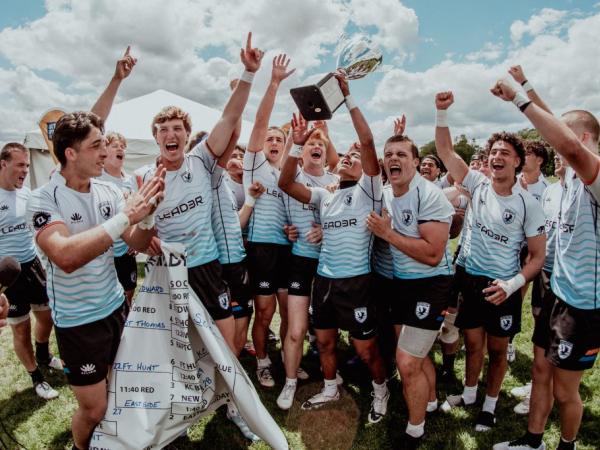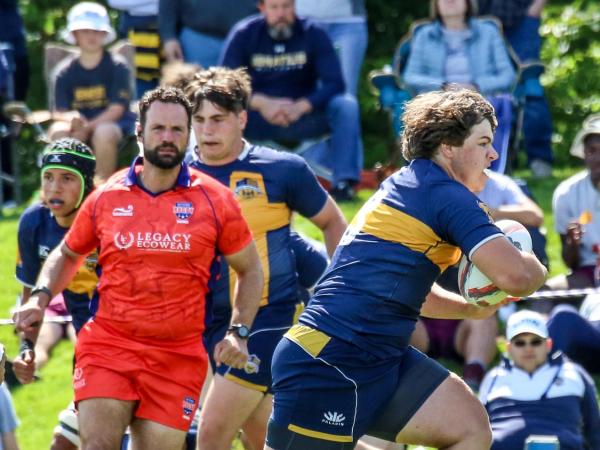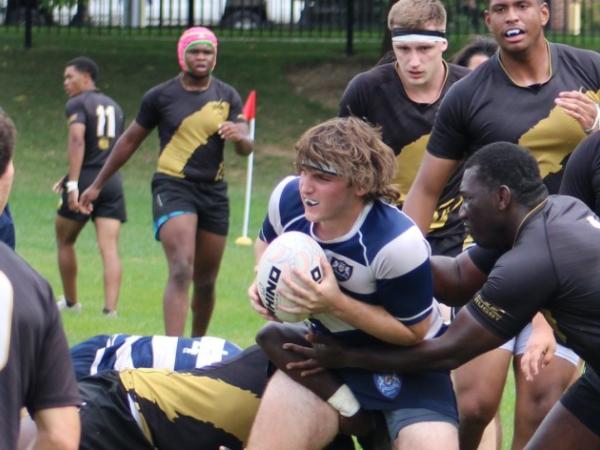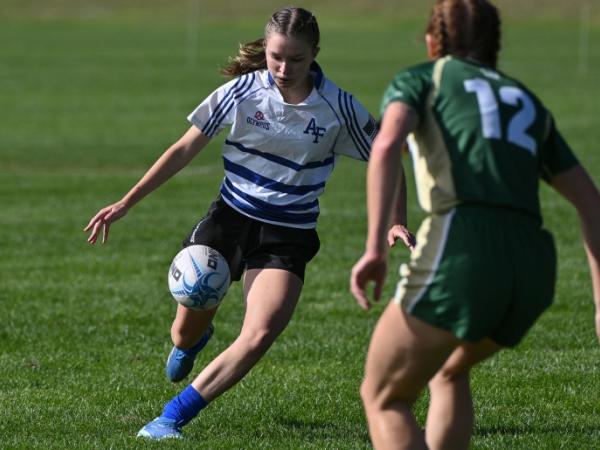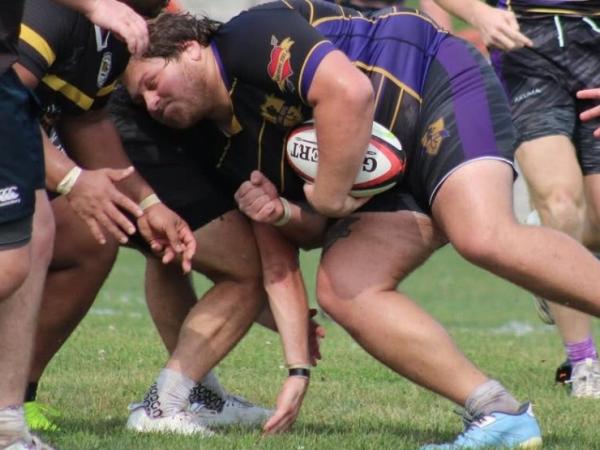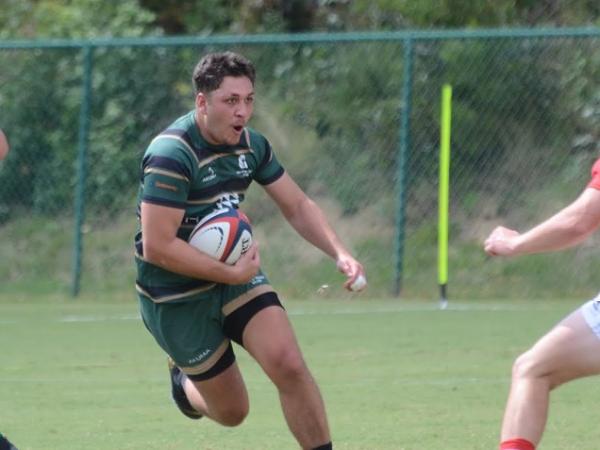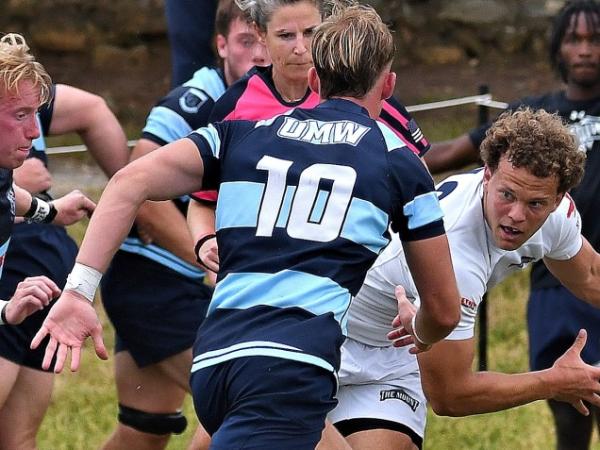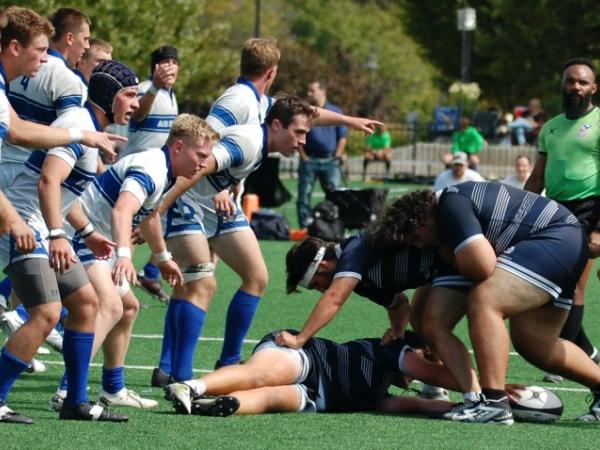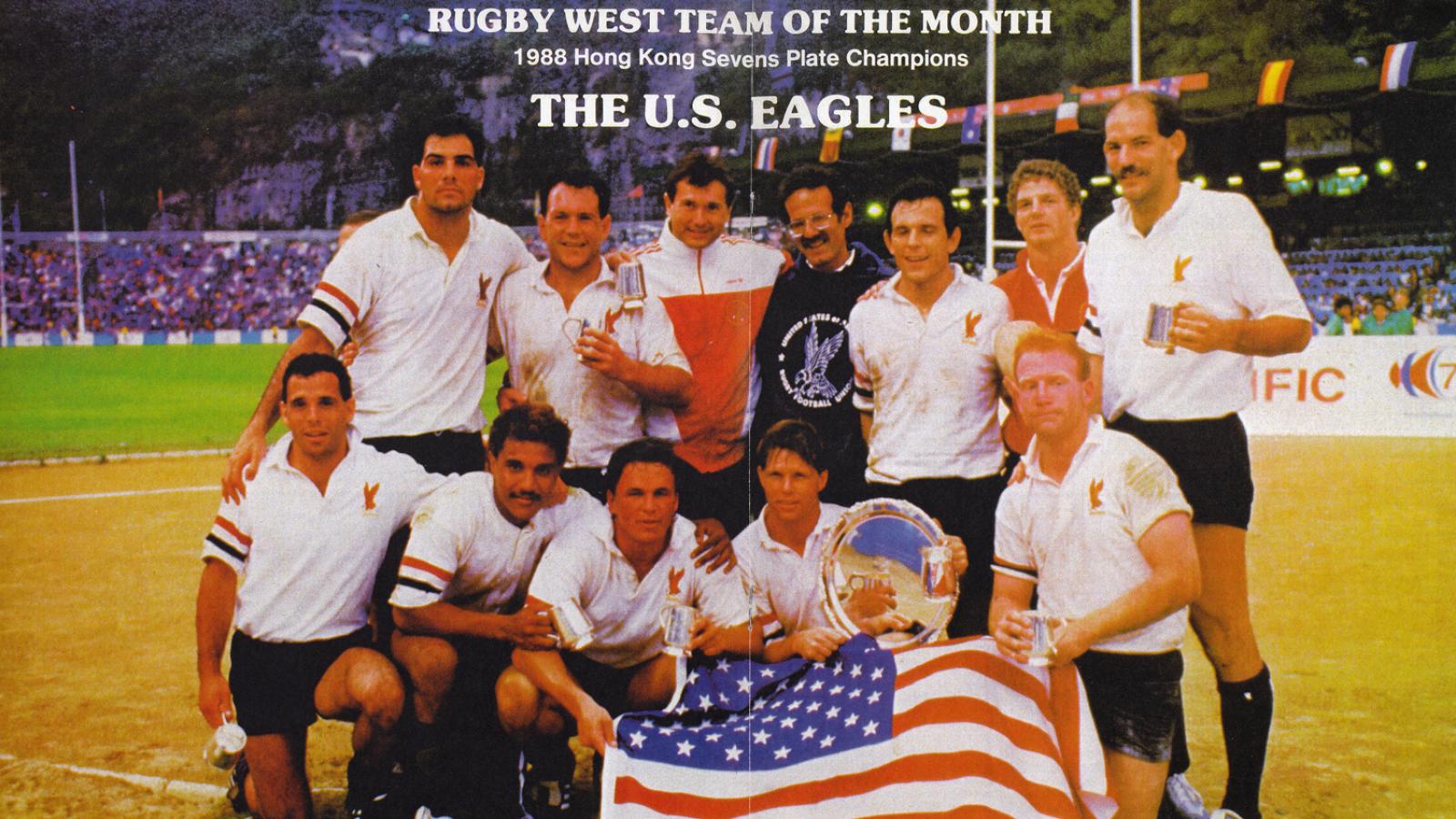It's just another rugby tour for the Eagle Impact Rugby Academy girls teams, except of course it's with players they don't know, playing opposition they don't know, with walls that don't go to the ceiling, in a format many are unfamiliar with and ... brace yourselves ... without their phones.
OK we exaggerate slightly. They are allowed to have their phones for one hour a day to check in with family. But the rest of the time? No phones. And they secretly love it.
Following Wednesday's impressive victories over Leinster, several of the tourists spoke with GRR about the trip to Ireland and what they've learned.
Malina Goldstein, Monarch HS, Colorado
Lucy Walker, East HS, Colorado
Alyssa Post, Sparta Rock Rugby, Michigan
Hazel Pron, Regis Jesuit HS, Colorado
Erin Croke, Regis Jesuit HS, Colorado
Tahna Wilfley, East HS, Colorado
Despite most of the players we spoke to being from Colorado, you will hear from them that they have found and develop friendships outside of their region. What they do have in common is the transition from 7s, which is what is played, for the most part, in the Rocky Mountain State.
"We just came in not really knowing the 15s game," said Croke.
That led to an adjustment period which covered the opening games against Munster, a close loss for the U16s and a close win for the U18s.
Just a few days later they won comfortably over Leinster's age-grade players.
"The girls just know the team more and know what we need to do in 15s more," said Pron.
Of the players who spoke to GRR, only Post had extensive experience playing 15s. "What is good is everyone's taking the opportunity to learn 15s.
"You have to adapt to the strategy," said Goldstein. "You can't just get the ball and decide to do something. Playing 15s is much more structure and that was an adjustment for all of us from Colorado."
More contact, less space, and a more patterned approach. But it's more than that. There's a group adjustment to be made.
"In 15s it not just you having to do something," said Croke. "You do everything as a team. You have to trust the person next to you to make a tackle and play much more as a team."
"And you need continuity," added Post. "In the first game our U16 team did not have any continuity. But by the second game I think that was the most continuity I've seen in a rugby team."
It's that learning which is critical to the tour. Most would agree that there isn't enough 15-a-side rugby being played in girls high school teams so EIRA is trying to expose them to that.
"The coaches have done a really good job helping us with the strategy," said Wilfley. "And as we play you're learning more about the player next to you. We figure out who does what and who is talking the most."
And it's more than just that. Players are being asked to open their rugby horizons in other ways, too.
"I've basically been a lock," said Walker. "But here they put me at center, and on tour I've played center, wing, and No. 8. It's really opened up to me the possibility of what I can do and where I can play."
About Those Phones
It has been a long-standing policy during EIRA tours and camps that players relinquish their phones. Team bonding happens with conversation and eye contact, and phones don't help with that.
"It made me nervous; I love my phone," said Croke. "But pretty soon we're got the cards out and we're playing games and talking. It works."
"The funny thing about the no phones is that while we get to know girls we didn't know before, I am getting to know the Colorado players better, too," added Wilfley. Funny how that works.
"I went to one of the EIRA winter camps but coming on this tour I was pretty nervous," added Goldstein. "But then I saw there are a lot of the girls from those camps and I was able to reconnect with them. the way the tour is structures we can foster those relationships."
Far From Home and Short Walls
Post was on tour last year and said in many ways the players didn't know what to expect—on and off the field. This time around, some of the players know each other and what that allows them to do is identify the girls who might have a tough time adjusting.
Everything's different, after all—the rooms, the weather, the accents.
"Having been on this tour before it gives us the opportunity to help the girls who are missing home," Post explained. "We can talk with them and say 'yes your mom still loves you even though you don't have your phone she knows you're thinking of her.' And if they're feeling homesick we might turn it around and say, 'OK maybe you're homesick but we've got a game tomorrow and we're going to crush it.'"
"I am new to an EIRA tour and I have to say that Posty took me under her wing. She told me about the phones, and that it's going to be different and the walls are short, but it's going to be OK."
Wait ... the walls?
Where the EIRA girls are staying, the walls don't go all the way to the ceiling. They're in dorms and while you do have privacy, the gap between the top of the wall and the ceiling means you can hear most conversations. So there's chatter in the evening through the gaps, and it's infectious.
"When you just hear someone giggle, pretty soon everyone's giggling and we don't even know why," explained Croke.





